AI SEO in 2025: How Artificial Intelligence Is Revolutionizing Search Engine Optimization
Introduction
In the fast-paced digital era of 2025, AI SEO (Artificial Intelligence in Search Engine Optimization) has emerged as a transformative force. As traditional SEO methods become less effective in the face of evolving search engine algorithms and user behaviors, AI-driven strategies are taking center stage.
In this comprehensive blog, we will explore:
- The rise of AI in SEO
- Game-changing AI tools in 2025
- Strategies like Generative Engine Optimization (GEO)
- How to future-proof your SEO strategy using AI
- Best practices and industry insights
Whether you’re a digital marketer, blogger, entrepreneur, or SEO agency — this article will help you stay ahead of the curve and establish real authority in your niche.
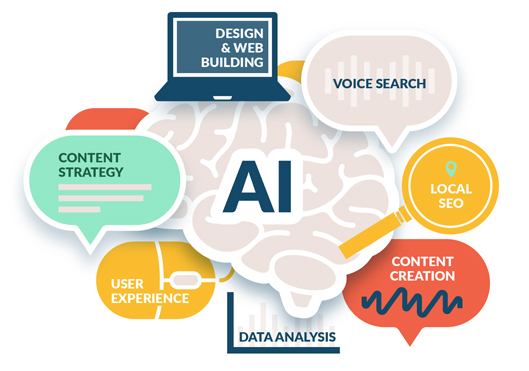
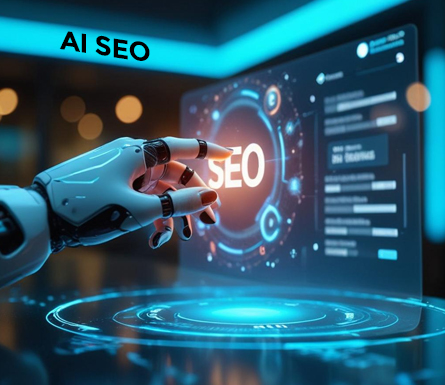
What Is AI SEO?
AI SEO refers to the use of artificial intelligence technologies to improve search engine rankings, content visibility, and user engagement. It goes beyond keyword stuffing or basic backlinks — AI SEO adapts to how search engines like Google Search with Gemini AI or Bing with Copilot are evolving.
Key AI technologies in SEO include:
- Natural Language Processing (NLP)
- Machine Learning (ML)
- Large Language Models (LLMs)
- Predictive Analytics
- Automated content generation and optimization
The Shift in SEO: From Keywords to Intelligence
1. Search Engines Are Changing
Search engines are no longer just indexing and ranking pages based on keywords and backlinks. With AI tools like Google’s Search Generative Experience (SGE) and ChatGPT’s Browsing, answers are now generated directly from AI models — reducing reliance on traditional web traffic.
Impact:
- Fewer clicks to organic websites
- More zero-click search results
- AI-generated answers becoming the “new homepage”
As a result, websites need to rethink how they are discovered — and how to position their content within AI-generated results.
What Is Generative Engine Optimization (GEO)?
GEO is a new SEO strategy designed for AI-first search engines.
Instead of only optimizing for human readers or keyword bots, GEO focuses on making content more visible to AI models like GPT-4o or Gemini.
Key elements of GEO:
- Structured data and schema markup
- llms.txt files to guide AI crawlers
- Quality signals like E-E-A-T (Experience, Expertise, Authoritativeness, Trustworthiness)
- Clear formatting: bullet points, headings, FAQs
- Machine-readable metadata
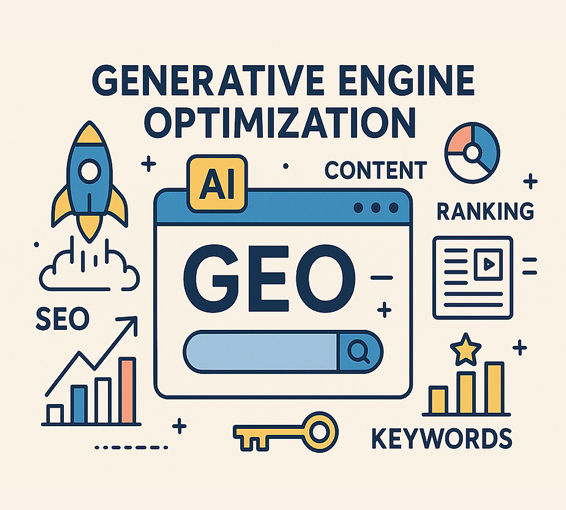
According to Wikipedia, GEO helps ensure your content is cited or referenced within AI answers, giving you indirect exposure and credibility even if users don’t click your site.
Top AI SEO Tools in 2025
To stay competitive in the evolving SEO landscape, it’s crucial to adjust your strategies to align with the latest algorithm changes. Here are some actionable tips for optimizing your website post-2025 algorithm update:
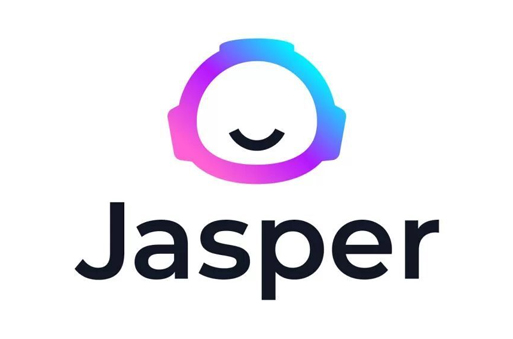
Jasper.ai
Jasper uses AI to generate SEO-optimized blog posts, ad copy, and landing pages. It integrates NLP and SEO recommendations directly into your workflow, helping you write better and faster.
- Auto keyword insertion
- Topic clustering
- Readability score optimization
- Tone and audience targeting
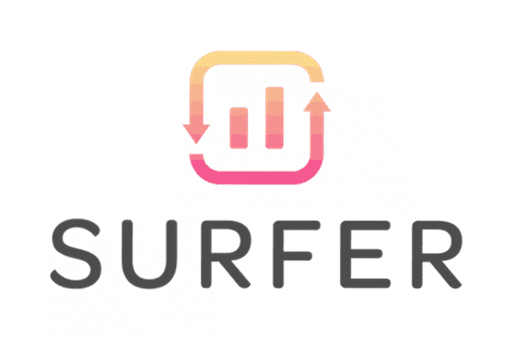
Surfer SEO
This tool combines real-time SERP analysis with AI-powered content suggestions. It analyzes the top-ranking pages and recommends structure, word count, headings, and keyword density.
- AI integration with Gemini and GPT-4o
- On-page SEO audits with voice command features
- Predictive ranking score

Writesonic
A robust AI writing assistant that creates SEO-friendly content, from long-form articles to meta descriptions and FAQs. It supports over 20 languages and adapts content style for various platforms.
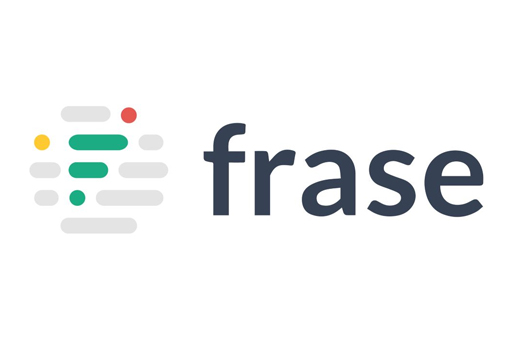
Frase.io
Frase creates content briefs and summaries based on real-time Google SERP data. It’s especially useful for aligning content with search intent and generating rich snippet-worthy answers.
AI SEO Best Practices in 2025
1. E-E-A-T Is King
Search engines prioritize content that demonstrates:
2. Human-in-the-Loop Content Creation
AI-generated content should be edited, fact-checked, and refined by real humans. Google has made it clear that quality and authenticity matter more than simply being “AI-generated.”
Tips:
3. Structured Content Wins
AI prefers clean, structured formats:
4. Optimize for AI Chat Summarization
Tools like Google Gemini and ChatGPT summarize articles into short snippets. Make sure your content:
How Businesses Are Leveraging AI SEO
To stay competitive in the evolving SEO landscape, it’s crucial to adjust your strategies to align with the latest algorithm changes. Here are some actionable tips for optimizing your website post-2025 algorithm update:

Case Study 1: E-Commerce Site
A fashion retailer used Surfer SEO + ChatGPT to create 200+ product guides optimized for AI search. Their organic traffic grew 68% in 3 months.

Case Study 2: SaaS Company
A B2B SaaS firm used Jasper to rewrite their knowledge base and blog. This resulted in higher featured snippet placements and over 50 citations in Google AI summaries.
The Future of SEO: Predictions for 2025 and Beyond
- SEO will be more about AI discoverability than just human clicks
- Search journeys will begin with chatbots, not search bars
- Google, OpenAI, and Microsoft will lead the AI search engine war
- Voice search and multimodal SEO (images, video, and audio) will rise
To stay competitive, websites must embrace AI, not fight it.

Conclusion
AI SEO is no longer optional — it’s essential.
If you want to build real authority, increase your visibility in AI-first search engines, and stay competitive in 2025 and beyond, you must:
- Use AI SEO tools
- Adopt Generative Engine Optimization strategies
- Prioritize human quality + machine visibility
- Focus on E-E-A-T signals
- Create content for both users and machines

